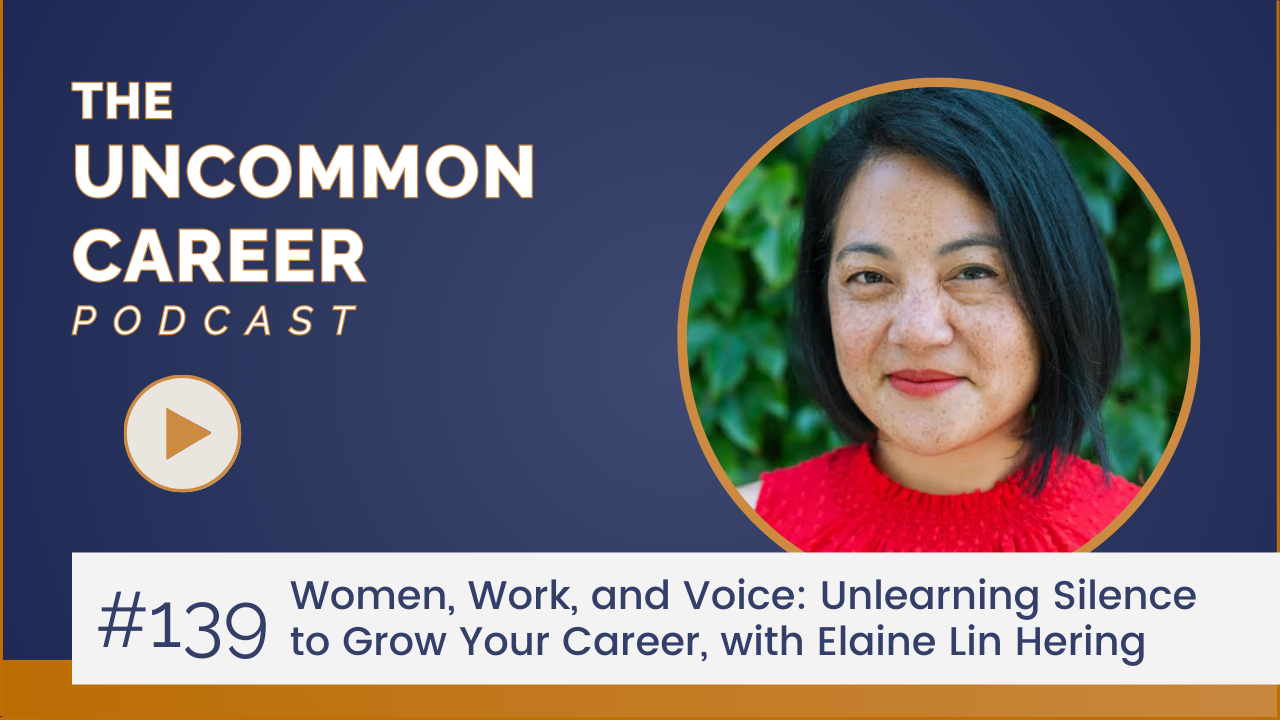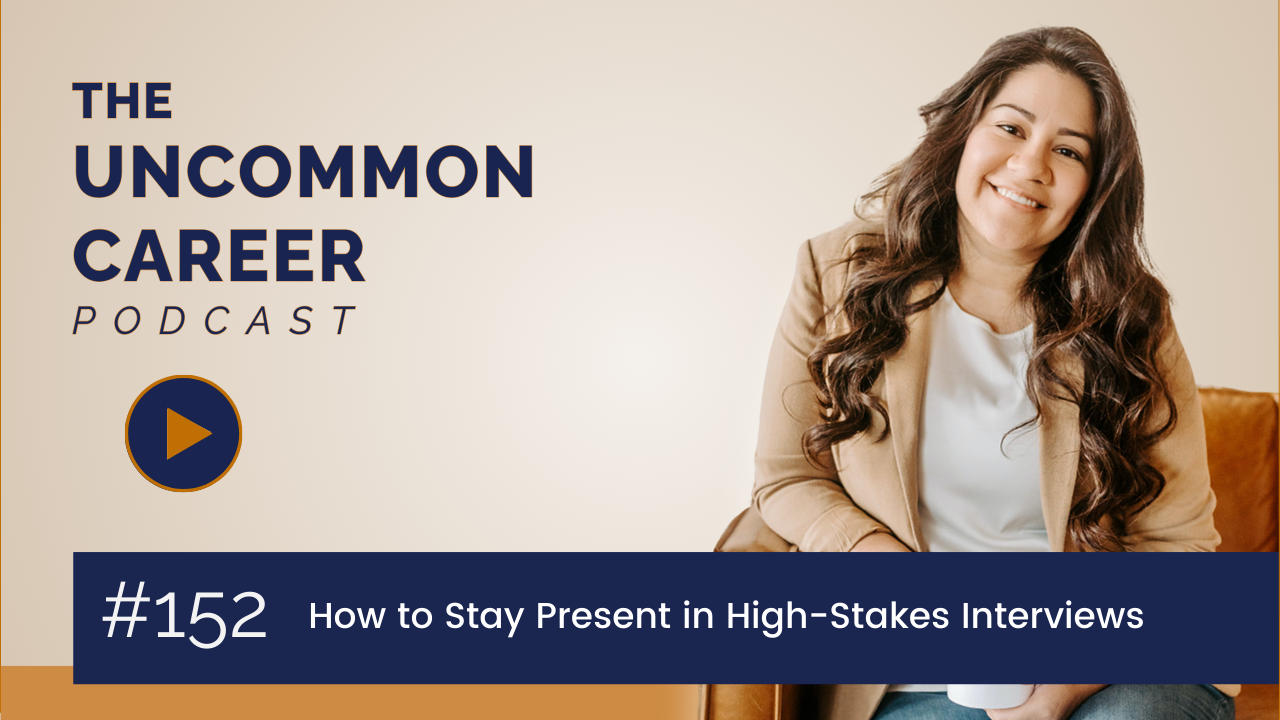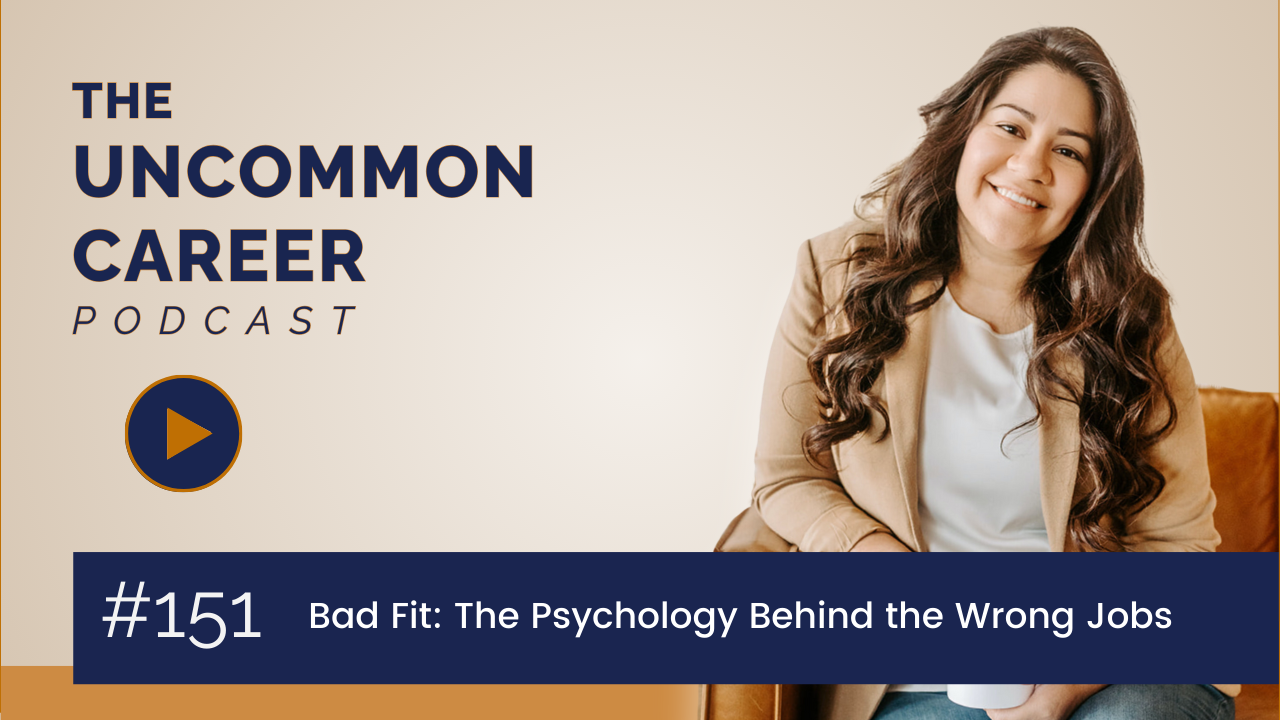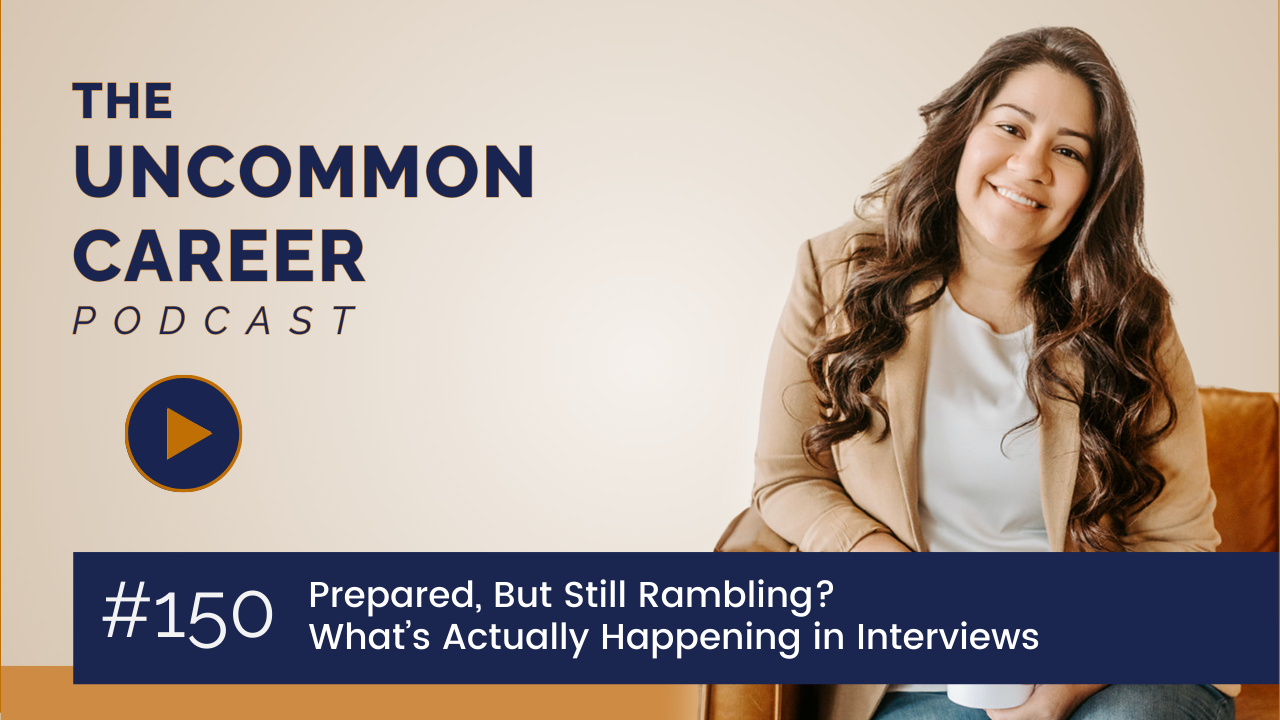139. Women, Work, and Voice: Unlearning Silence to Grow Your Career, with Elaine Lin Hering
Nov 25, 2025
Looking to Grow Your Career? Start by Unlearning Silence
Voice shapes careers as much as skills do. Career paths expand when silence stops doing the steering, when expectations no longer dictate choices, confidence is decoupled from constant approval, and decisions are made with intention rather than autopilot.
Drawing on a conversation with Elaine Lin Hering, this guide explores how learned silence forms, why it persists, and how to unlearn it so that work, relationships, and leadership reflect the fullest version of the person doing them.
|
Listen on your favorite podcast app: |
| |
Why This Matters
Silence often dresses up as professionalism: blend in, stay agreeable, don’t ruffle feathers. That may buy short-term ease, but over time it comes at a steep cost: missed promotions, misunderstood potential, and the dull ache of living out other people’s expectations while your own ambitions sit on the sidelines.
The truth is simple and freeing: the past doesn’t have to dictate the future.
The patterns you learned - whether from culture, family, or early career experiences - can be honored for what they gave you, and released for what they now hold back.
The moment silence becomes a choice instead of a default is the moment momentum returns.
Learned Silence: How It Happens
Most of us don’t have a dramatic “origin story” of staying quiet. Silence builds slowly: Be respectful. Don’t contradict. Don’t take up too much space. Let hard work speak for itself.
And early on, that works. Teams like the support. Leaders praise the low-maintenance contributor. But eventually, a ceiling hardens. Labels show up, like “not leadership material” or “lacking presence.” Growth stalls not because of missing skills, but because your voice isn’t visible.
That’s not failure, it’s feedback. The environment trained you to respond a certain way. The next chapter simply calls for a new playbook.
How to Unlearn It
The turning point is realizing silence is a choice, not your identity. Changing that choice may disrupt systems that benefitted from your quiet compliance, like family, culture, even your company. Discomfort here isn’t proof you’re wrong; it’s proof that things are shifting.
Think of unlearning silence as a practice, not a flip of a switch. You choose your voice moment by moment, topic by topic, relationship by relationship. With clarity, you decide where your energy matters most.
If you’ve ever thought, Maybe I’m overreacting. Maybe I read the room wrong. Maybe it’s just me—you’re not alone. That’s often misdiagnosed as low confidence. But the fuller picture includes the ecosystem around you: Who gets interrupted? Whose ideas get funded? What “leadership presence” has historically looked like?
The answer isn’t “fix yourself and come back.”
It’s multi-layered:
-
Rebuild your own permission to speak.
-
Invite others to receive your voice differently.
-
Challenge structures that reward conformity over contribution.
This shift reframes the whole strategy.
Two Questions That Ignite Your Voice
Start small. When reading, listening, or in a meeting, ask yourself:
-
What do I think? (Not your manager’s opinion. Yours.)
-
What do I need? (Get clear on what will enable you to do your best work.)
Over time, these questions turn second-guessing into clear judgment others can see and trust.
And if your first thought is still, Maybe it’s me, try this:
Replace it with, What’s one small thing I could test to gather data?
Voice grows over time, through experiments.
The Other Side of Silence
So what’s waiting on the other side?
-
Freedom—to choose work and relationships that fit.
-
Alignment—to stop forcing things that were never meant to work.
-
Impact—because modeling voice creates space for others to do the same.
Having a voice may sound like it will fracture relationships, but the truth is that it deepens them. Conflict becomes productive, not destructive (If we don't have the conversation to understand what happened, the story we have in our mind only grows darker). The healthiest spaces pass a simple test: It’s okay to say, “I see it differently.”
Choosing When Not to Speak
This isn’t about saying everything, everywhere, all at once. Silence can also be wise.
If silence is demanded as the cost of belonging, that’s suppression.
If silence is chosen to conserve energy for bigger conversations, that’s leadership.
The key difference? Agency.
Are you deciding when to be silent, or is it being decided for you?
Forget perfect plans. Start experimenting:
-
Draft the resume bullet. Is it accurate? Then own it.
-
Float the idea with a peer.
-
Run a small project that tests your reach.
Through small, chosen steps, you can test the waters, find your voice, and decide how to use it.
Elaine Lin Hering tells us, in her book and in today's episode:
Voice isn’t about being the loudest in the room.
It’s about knowing what matters to you and being free to share it.
It's time to speak up!
Your career and life will thank you.













